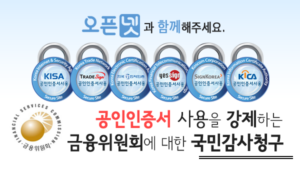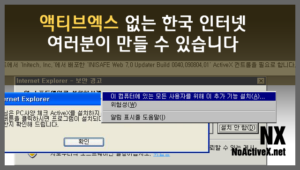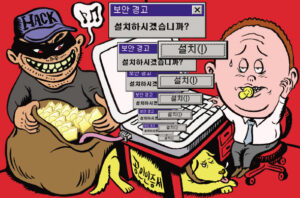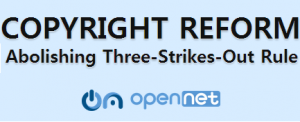Press Release
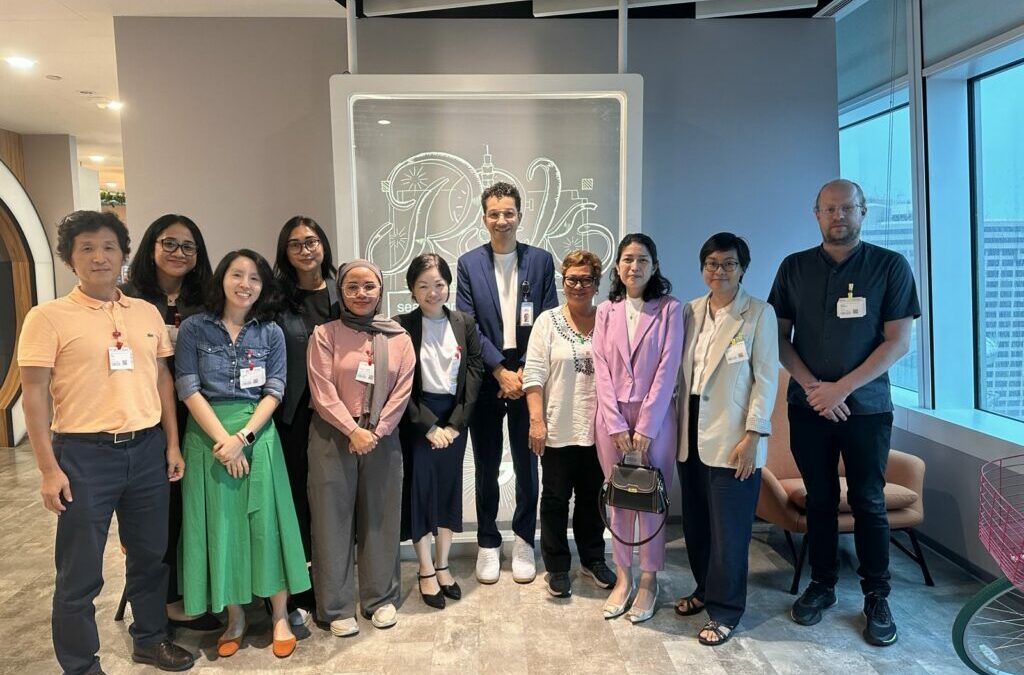
Protected: SEACPN meets with Google at APrIGF 2024 sideline
Password Protected
To view this protected post, enter the password below:
[Press Release] We condemn the pro-government censorship attempts against satirical videos through KTV’s excessive copyright abuse
KTV has filed a police complaint against singer 'Baekja' for copyright infringement regarding a...
[Press Release] Call to End Investigation of Individuals Involved in 36-Week Abortion Case
This investigation will discourage information-sharing on abortion and it leaves women in need of...
US Supreme Court nearly dictates lower court to strike down Florida/Texas restriction on platform’s voluntary moderation of political content – per Open Net’s amicus opinion!
On July 1, the US Supreme Court sent back to lower courts Texas and Florida laws restricting...
Submitted Opposition to the Amendment on the Act On Press Arbitration And Damage Remedies, which provides for punitive damage for the press
On June 20, 2024, Open Net Korea submitted the following opposition to the proposed amendment to...
LITIGATION
Open Net Leaves Good Precedent for Fair Use and Damages Calculation
Please read the Korean original here.
Open Net Successfully Defended a NGO From Copyright Troll with Fair-Use Defense
Please read the Korean original here.
Open Net Filed a Lawsuit against KCSC to Restore a P2P 4shared.com
Please read the Korean original here.
Please Take Part in Our Lawsuit to Protect Our Right to Know Whether We are being Surveilled!
Please read the Korean original here.
Open Net and PSPD Law Center Win a Not Guilty Verdict on Coast Guard’s Defamation Charges Against Hong Ga-Hye, the Whistleblower
Please read the Korean original here.
OPEN SEMINAR
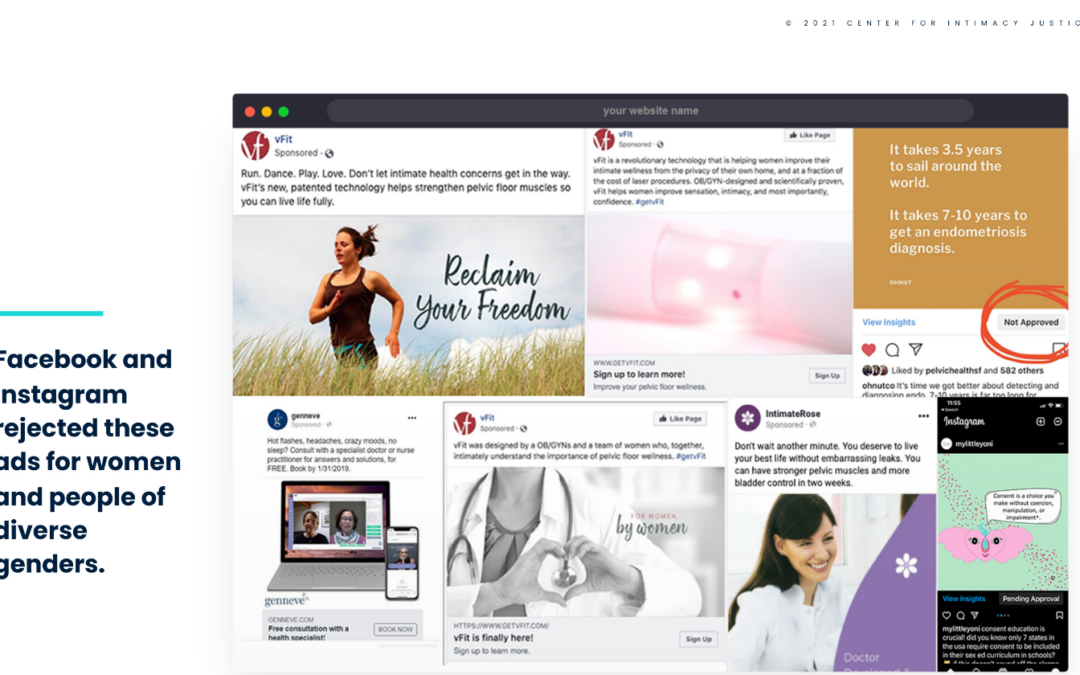
RightsCon 2022: Big Tech’s Censorship on Sexual Expressions in Asia
Big tech companies’ censorships on sexual expressions with focus on impact in Southeast and South...
RightsCon 2022: What Will European Commission’s Grand Plan to “Charge” the Internet Do to Asia?
What is "network usage fee"? : What will European Commission’s grand plan to "charge" the internet...
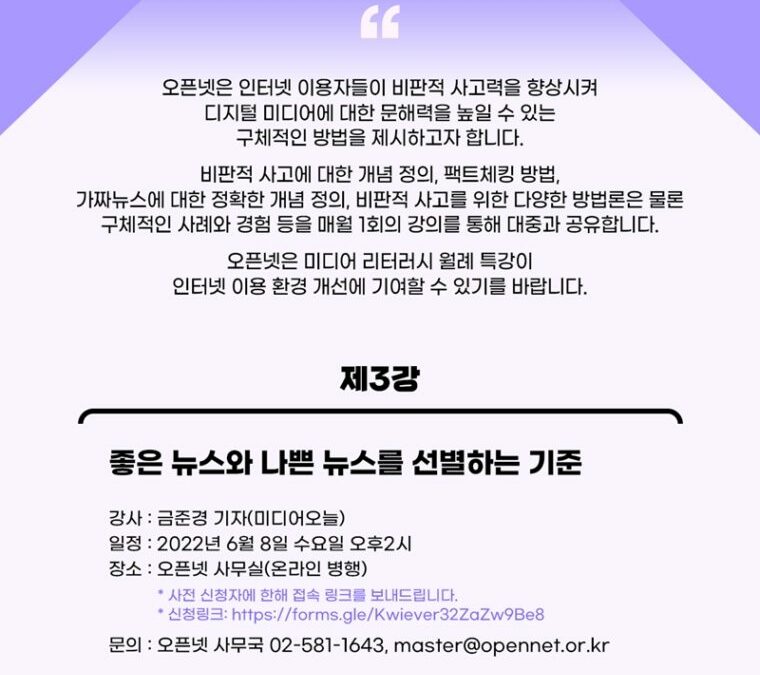
Part 3 of Open Net’s Special Lecture Series on Media Literacy – How to Distinguish Between Good and Bad News (14:00 June 8, Online and Offline)
You can read the Korean original here.
[Press Conference] Open Net · Institute for Inclusive Society Announces Research Results on “Digital Literacy Problems and Solutions for the Elderly” (May 23)
You can read the Korean original here.
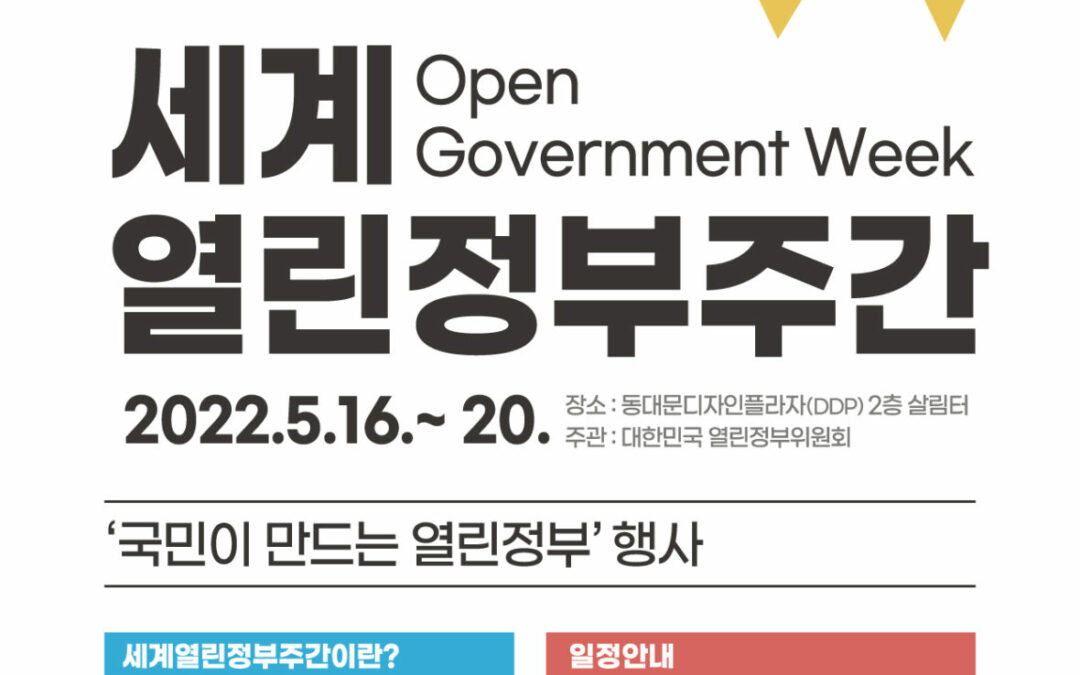
Open Net Co-hosts Open Government Week as Part of the Open Government Partnership
You can read the Korean original here.
COURT ACTIONS
No Results Found
The page you requested could not be found. Try refining your search, or use the navigation above to locate the post.
education
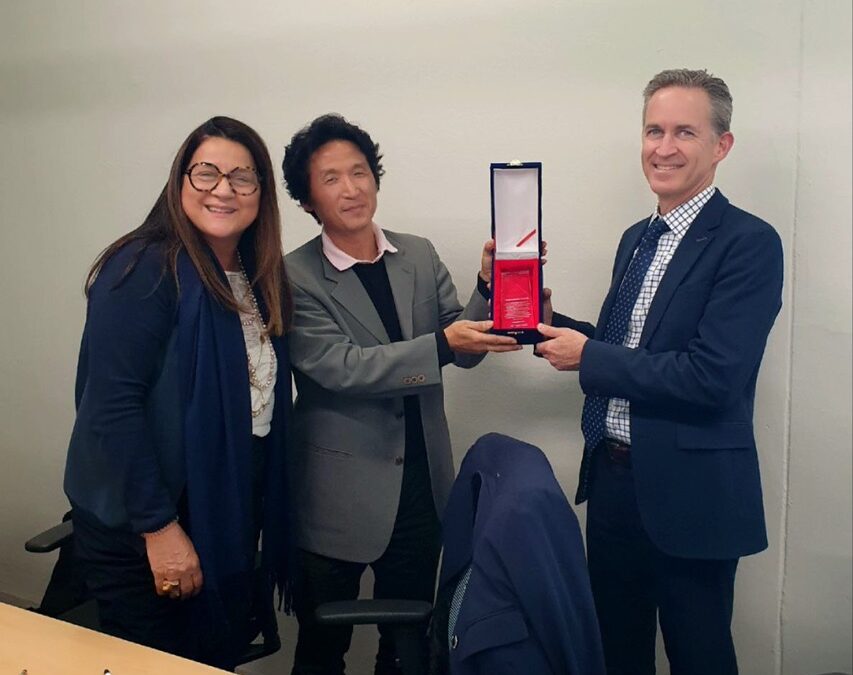
Anonymity as privacy on identity: Joint International seminar with UN Special Rapporteurs on Privacy (current) and Free Expression (former)
David Kaye, the former UNSR on freedom of expression, through a seminal report in 2015,...
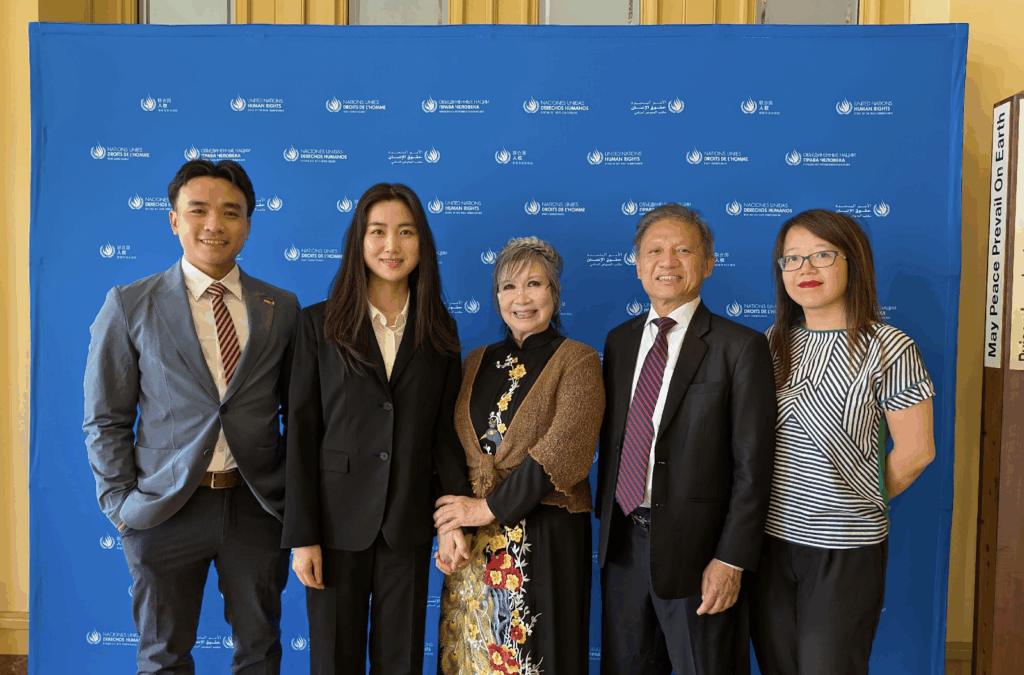
Open Net and LIV Lobbies for Vietnam’s digital rights before UN and Human Rights Committee responds with sweeping advices to the government
Open Net, together with Legal Initiatives for Vietnam (LIV), conducted successful advocacy during...
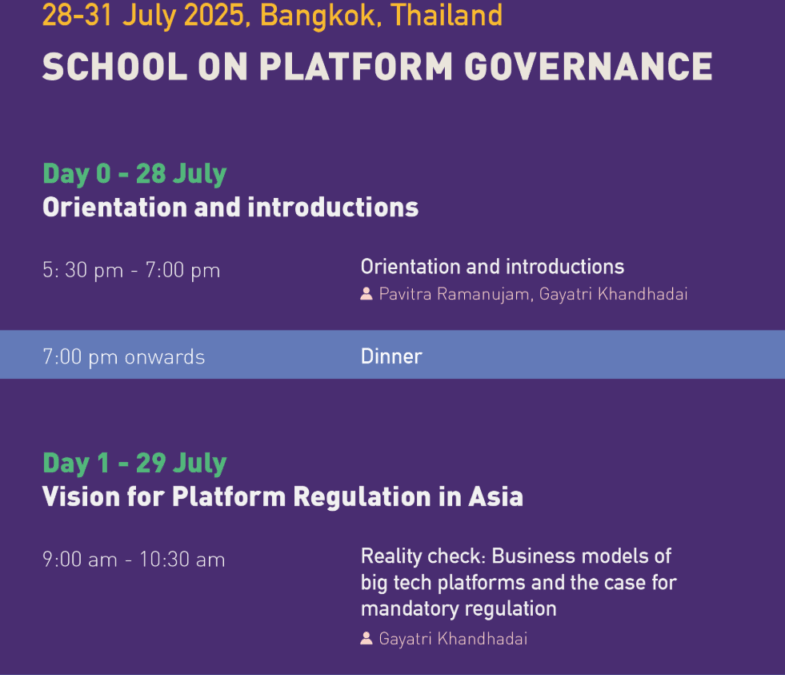
Open Net and APC hold a school for platform governance for activists and policy-makers
Open Net co-sponsored a school on platform governance with Association for Progressive...
[2025 KrIGF] (Session 5) Direction for Mutual Growth and ESG of Internet Companies
https://youtu.be/XFRazWvpvvM?si=RXL9hPjqe88qY5uN ◎ Proposal Purpose and Key Issues Proposal...
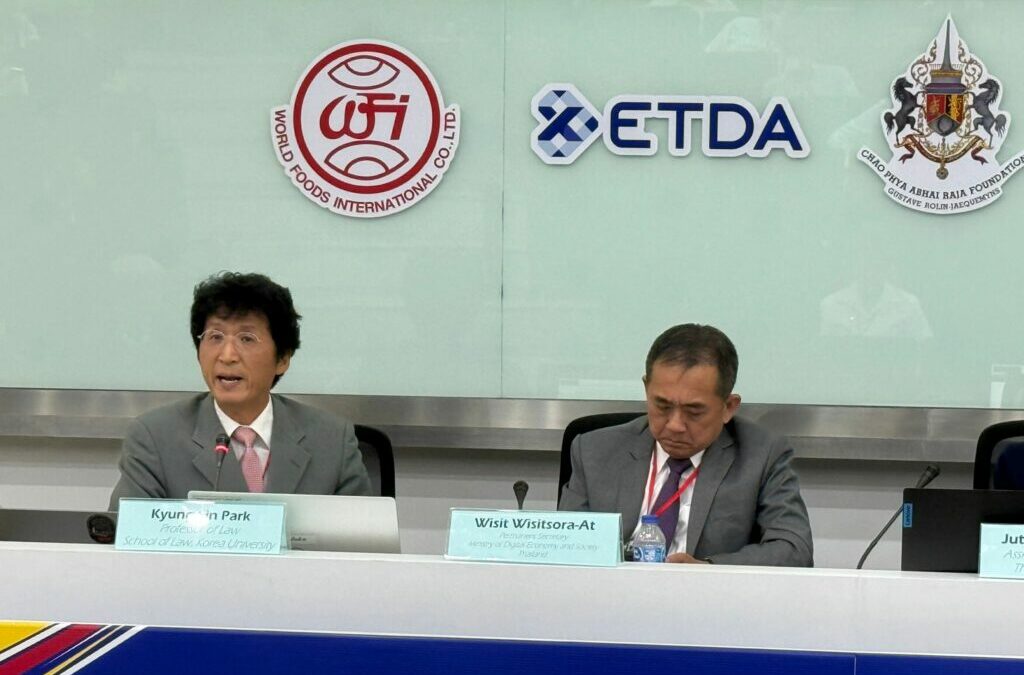
Bangkok conference on platform regulation – Understanding DSA as a model for Asian democracy and economic development
K.S. Park spoke on the history of platform regulation on June 24, 2025 in Bangkok at a conference...
POLICY RESEARCH
[Open Net Forum] Zero-rating: Users’ Interest vs. Fair Competition
Please read the Korean original here.
[Open Net Forum] The Miracle at Marrakesh: Doing Justice for the Blind and Visually Impaired While Changing the Culture of Norm Setting at WIPO
Please read the Korean original here.
[Open Net Forum] Era of Big Data and IoT – Is De-identified Information Personal Information?
Please read the Korean original here.
Open Net Holds Seminar on the Copyright Trolls Prevention Bill at the National Assembly
Please read the Korean original here.
[Open Net Fourm] Peer Production of Culture and Knowledge: P2P Technology and Digital Democracy
We know people who are dreaming of and trying to realize a society working on open knowledge and...
CAMPAIGN
Stop Internet Censoring
We have seen many attempts to censor the Internet under the pretext of copyright protection. Notorious attempts are SOPA and PIPA of 2012, which triggered the largest online protest in history and was eventually withdrawn, and ACTA, a plurilateral trade deal killed by the European Parliament in 2012. Now, Korean government tries to enact a much stronger internet censoring rule. If it passes the legislative body, a copyright protection agency may cut off access to websites that the agency views as copyright infringing. The concerns over mass surveillance and privacy vulnerabilities by the proposed rule are widespread amid the government’s new drive to block “https” traffic by SNI eavesdropping (See, press release of Korea Communication Commission on February 12, 2019 and press release of MCST on May 2, 2018, both in Korean).
Intermediary Liability Campaign
Korean law (Copyright Act Article 103, Information Communication Network Act Article 44-2) requires intermediaries to take down all content for which anyone sends a takedown notice, regardless whether the content violates any right or law, not as a condition of qualifying for a safe harbor but as a positive obligation. As a result of this ‘mandatory’ notice-and-takedown system, the intermediaries are forced to take down thousands of contents daily which they believe to be perfectly lawful. Also, Korean laws require some intermediaries like P2P and cyberlockers to implement ‘technical measures’ to filter out copyright infringing material (Copyright Act, Article 104) and obscenity (Telecommunications Business Act Article 22-3 Paragraph 1), and requires all intermediaries to implement technical measures to filter out child pornography (Children and Juvenile Sex Protection Act Article 17). These ‘technical measures’ requirement ends up requiring the intermediaries to monitor each and every third party content posted on their services, turning the Internet into a space open to only those contents implicitly permitted by the intermediaries.
Open Net Korea has engaged in various efforts to bring the Korean law into compliance with the international norm, including but not limited to participating in the Steering Committee of the Manila Principles for Intermediary Liability, co-authoring a Good Practice Guideline for Intermediary Liability Regime published by the Network of Centers for Internet and Society, and calling the international community to write to the relevant officials.
Open Payment Campaign
Currently, the law requires all online payments above 300K Korean won (about US$300) to be signed by so-called “accredited certificates”, which are backed only by a Korean government agency operating as a root CA but none of the internationally recognized certificate accreditation agencies and therefore require various plugins to be downloaded from various vendors (most often through Active X technology due to the 90% plus dominance of Internet Explorer in the country) enabling and protecting the certificates. Such monolithic “closed” payment rule made the Korea-based e-commerce inaccessible for overseas customers and very inconvenient for domestic customers and indoctrinated Korean customers into a dangerous habit of accepting downloads of unknown origins, who therefore became easy targets for pfishing and other financial frauds. Open Net calls for the dismantling of the payment rule mandating use of the government-backed-certificates that are not really “accredited” in any global sense.
In 2013, Open Net ran a petition drive to file a Citizens’ Audit on the Korean Financial Services Commission responsible for implementing the closed payment rule, and obtained the sponsorship of more than 300 signatories who signed on-line at this site.
In 2013, Open Net ran a grassroots petition drive here to demand that the authorities overhaul the online payment rule so that the Korean net users can make payments without the nail-biting, computer-freezing, caution-numbing downloading of all the plugins. Several thousands have signed on putting pressure on the legislators and authorities.
In the latter half of 2013, Open Net lobbied for a Digital Signature Act amendment bill allowing digital signatures to be approved by internationally recognized root authorities and a Electronic Financial Transactions Act amendment bill requiring the Financial Services Commission rule-making to be technology-neutral in accordance with the Basel Principles. Here is the campaign headquarter page from which people will gather information and write mails, Twits, FB entries alerting the relevant lawmakers.
“Real” Child Abuse Prevention Campaign
The law punishes virtual images of imaginary children such as in animation and adult-actor films under the same legal scheme as child pornography made of video-recording or “morphing” of real children, which carry mandatory minimum sentence of 5 years for production and, among other things, 10 years of employment ban and 20 years of residential address tracking, not to mention the stigma of “child sex offenders”. Such law resulted in police actions focused on online uploading and downloading of files at the expense of depleted resources for pornography involving real children, which ironically ended up indictment of juvenile computer users as “child sex offenders”. Open Net calls for amendment of the Child and Juvenile Sexual Abuse Prevention Act to make the law serve its real purpose.
Campaign to Strike Out the Three Strikes Rule
In Korea, the copyright Three-Strikes-Out Rule came into effect on July 23, 2009 and gave the government a power to disconnect users from the Internet in the name of copyright protection. So far, although no one has been disconnected from the Internet, 408 website accounts have been shut down and 468,446 warnings or takedowns have been executed by the South Korean government (The Ministry of Culture and the Korean Copyright Commission, an entity empowered to do so without judicial scrutiny under the three-strikes rule). There is no prior judical scrutiny. The government has the full discretion in determining whether the postings or the user accounts are to be taken down or not. This is administrative censorship done fast and cheap for the rightholders, however, suppressing freedom of expression and communication and Internet users’ fundamental right to access, and endangering the future of the free and open Internet.

